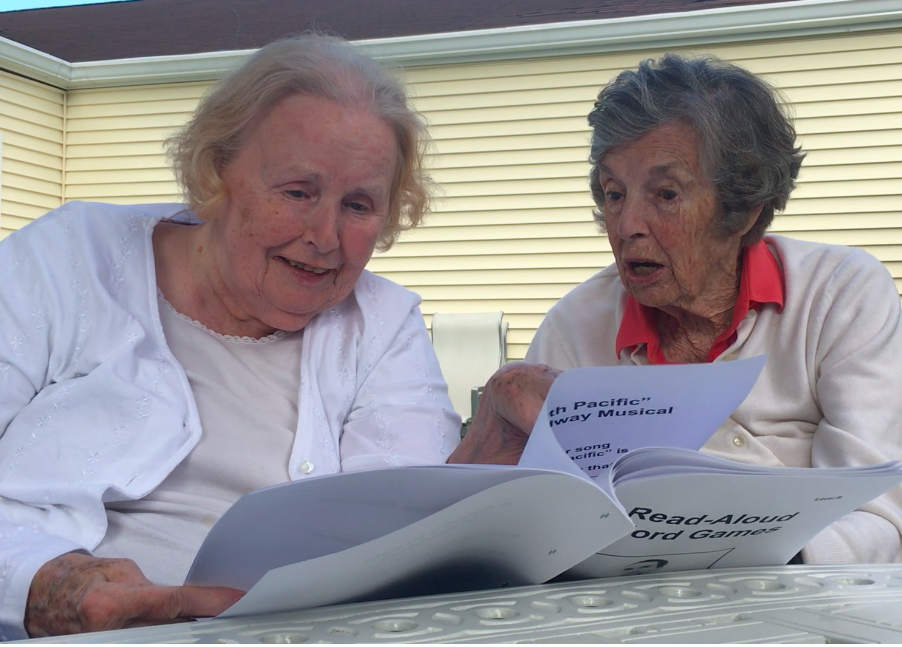The Magic of Reading for Persons with Dementia

When you explore why we humans like to read, you find statements such as,
“We read to know we’re not alone.”
“Books unfold new worlds, worlds that can sing to you, comfort you, quiet you.”
“Books help us understand who we are.”
What a shame that people living with dementia cannot have these experiences in a time when they need them most. After all, elders living with degenerative conditions can no longer read in any meaningful way, correct?
No; this assumption is not correct. The ability to read is stored in the long-term procedural memory. It’s an automatic skill that most older adults retain, to some functional degree. Although people living with dementia experience declines in visual, cognitive, and sensory areas, the basic ability to read is relatively untouched by dementia.
Then why do most older adults stop reading in the early stages of dementia? The answer lies in the format and syntax of typical newspapers, magazines, and books. Aging adults need an adapted print material to exercise their latent capacity to read. Modifications in font, visual contrast, syntax, graphic layout, and the relationship between images and text all compensate for cognitive deficits related to aging or dementia. Adapted reading allows most older adults to independently experience the joy of leisurely reading, at their own pace, in their own way.
The International Federation of Library Associations writes,
Being able to read gives a person self-confidence, enabling them to expand their view of the world and take control of their own life. Through reading, people are able to share ideas, thoughts and experiences, and to grow as human beings.
These gifts are especially precious during the aging process. Let’s soften and expand our ideas of what adult reading material looks like. Aging lifelong readers should not have to enter into a literary abyss when typical published material becomes inaccessible.
Age/dementia-friendly books should not be child-like, but instead tap into the memories that can come alive for older adults, especially those living with dementia. For care communities, a life engagement activity that offers quality, dementia-friendly books will facilitate a multi-sensory experience of resident-directed, independent reading. The Reading2Connect®️ books and training program is just that - an innovative activity to enrich the lives of older adults, fostering diversity and inclusion, and offering a variety of opportunities to facilitate activities involving comedy, trivia, singing, spirituality and more. To learn more about the Reading2Connect®️ program for senior living communities, visit AGE-u-cate Training Institute.
We're on a mission to ignite change in senior care. Would you like to join us?


